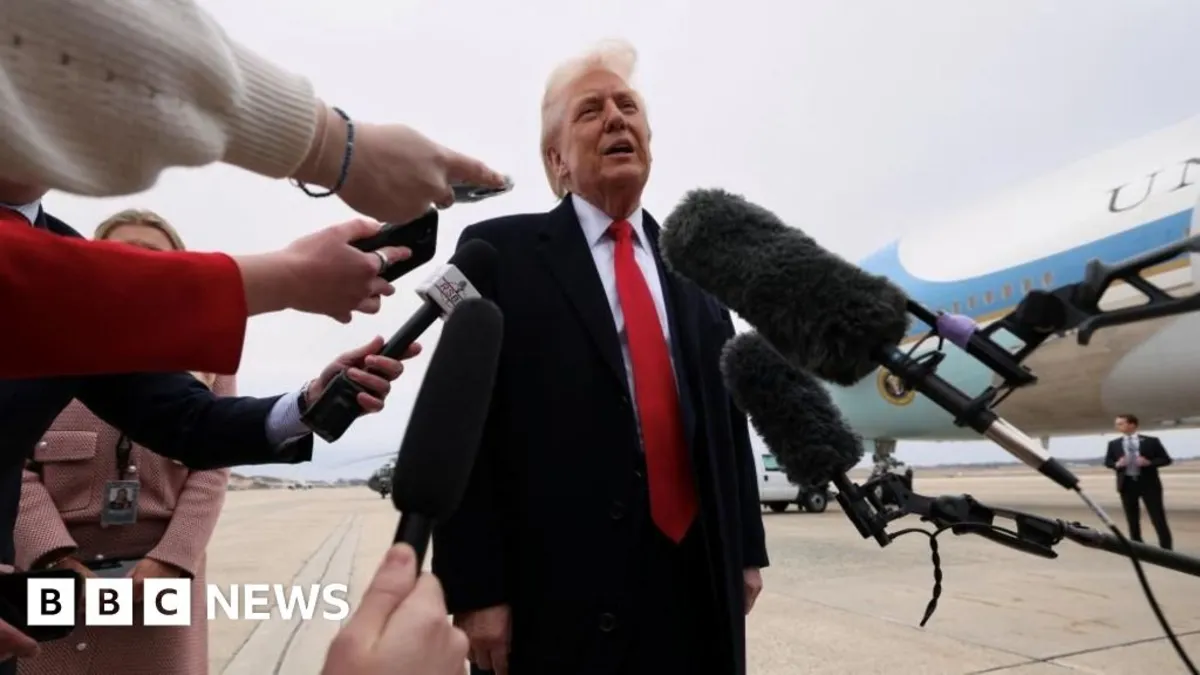
A federal judge has intervened to stop US President Donald Trump from utilizing a 227-year-old law designed to protect the nation during wartime for the purpose of executing mass deportations of Venezuelan immigrants. On a recent Saturday, Trump claimed that members of the Venezuelan crime gang, Tren de Aragua, were engaging in irregular warfare against the United States and announced his intention to deport them under the Alien Enemies Act of 1798.
In response to Trump's proclamation, US District Judge James Boasberg issued a ruling that evening, halting all deportations related to the president's announcement for a period of 14 days. According to reports from media outlets like the Washington Post, Judge Boasberg emphasized during the hearing that he had received information about planes carrying deportees taking off and subsequently ordered those flights to be turned back.
The Alien Enemies Act permits the US government to detain and remove individuals deemed to pose a threat to national security during wartime, without the necessity of following due process. Historically, this law was last invoked to intern individuals of Japanese descent during World War II, a fact that adds gravity to its current application.
Trump's announcement on Saturday was not unexpected, as he had previously vowed to employ this controversial law for mass deportations during his campaign. He accused Tren de Aragua of executing, attempting, and threatening an invasion against the United States. In reaction, Yván Gil Pinto, Venezuela's foreign affairs minister, publicly condemned the White House's decision to invoke this centuries-old statute, characterizing it as an unjust criminalization of Venezuelan migration.
Prior to Trump's proclamation, the American Civil Liberties Union (ACLU) and other rights organizations had already initiated legal action to prevent the use of the Alien Enemies Act. Judge Boasberg noted during a hearing that the terms "invasion" and "predatory incursion" in the law are typically associated with hostile actions conducted by enemy nations. He stated that the law likely does not provide a solid foundation for Trump's proclamation, as reported by the New York Times.
The situation is expected to progress through the legal system, potentially reaching the Supreme Court. The proclamation and the ensuing legal debate are anticipated to energize Trump's base, who largely supported his return to the White House based on promises to tighten immigration control and reduce everyday costs. Since his inauguration in January, Trump has moved swiftly to reform the US immigration system.
Critics, including legal experts and rights advocates, have described the invocation of the Alien Enemies Act as unprecedented, noting that it has historically been applied only after the US formally declared war on other nations. Under the Constitution, the power to declare war resides solely with Congress. Trump's order specified that any Venezuelan citizens in the US, aged 14 and older, identified as members of Tren de Aragua, and not recognized as naturalized or lawful permanent residents, were to be apprehended and deported as Alien Enemies.
Critics argue that Trump did not clarify how authorities would determine an individual's membership in the violent, transnational gang. By invoking this law rather than existing immigration statutes that already provide ample authority for deporting gang members, Trump seeks to circumvent the need to demonstrate that detainees are indeed affiliated with Tren de Aragua. Katherine Yon Ebright, a counsel at the Brennan Center for Justice, commented that Trump's approach seems designed to enable broad detentions and deportations of Venezuelans based on their ancestry rather than substantiated gang activity.